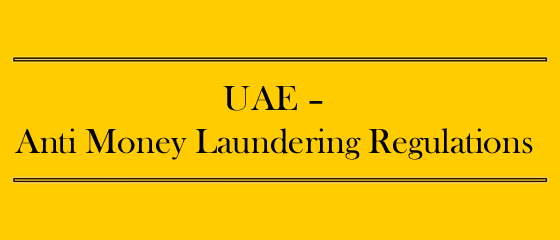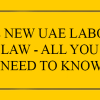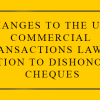Introduction
UAE – Anti Money Laundering Regulations – Many banks and financial institutions have been established in the UAE for assisting companies and individuals with financial transactions. With growing financial activities, many companies and individuals have become prone to money laundering activities. This article is intended to postulate general guidelines to Anti Money Laundering Regulations in the UAE. Money laundering is an economic offence that drastically affects a country’s economy. In this article, we will try and understand the recent legal development of money laundering regulations in the United Arab Emirates with decisions passed by local and international courts as has been discussed further here. Interestingly, the courts in the UAE have passed a few landmark decisions concerning money laundering. In UAE, the principal legislation governing money laundering is Federal Decree-Law No. (20) of 2018 on Anti-Money Laundering and Combating the Financing of Terrorism and Illegal Organizations (AML Law) along with Cabinet Decision No. (10) of 2019 concerning the implementing regulation of the AML Law. These laws are an attempt to answer the criticism that arose in the previous legislation. The international AML standards have shaped the new AML law which includes recommended special features by the Financial Action Task Force (FATF). The AML law gives various mechanisms for combating money-laundering. This law is a step forward for ensuring that businesses manage compliance risks of activities related to money laundering in the UAE. For specific advice, please contact a Dubai Lawyer or a law firm in Dubai.
Money Laundering Regulations in UAE
According to the Cabinet Decision No. (10) of 2019, the AML regulations clarifies that only those entities qualified as Financial Institutions or as Designated Non-Financial Businesses and Professions (DNFBPs) will be subjected to the obligations of the AML Law. The Article (2) of Cabinet Decision No. (10) of 2019 provides various activities and transactions of Financial Institutions and DNFBPs which shall be subject to the obligations of the AML Law. A person or entity that conducts one or more financial activities or transactions for or on behalf of a Customer is a Financial Institution as per the new regulation. A person or entity which is engaged in the trade or business activities provided in Article 3 of the regulation is a DNFBP. The Federal Decree-law No. (20) of 2018 on Anti-Money Laundering and Combating the Financing of Terrorism and Financing of Illegal Organizations have laid down certain measures which are as follows:
- The establishment of a Financial Information Unit (FIU) for investigating suspicious activities
- Guidelines issued by the Central Bank Panel
- Implementing orders as part of the National Committee for countering money laundering.
The professionals, financial institutions and businesses shall consistently perform diligence and also analyze the risks connected with every financial transaction.
The major points and objectives under the Law are covered below:
1.Independent Crime (Article 2)
Article 2 specifies and makes it clearer that money laundering is an independent crime different from the predicate offence having the source of the laundered money. The perpetrator can’t evade the separate sentence of money laundering even if punishment has been established for the predicate offence. The prosecutor while investigating will not have to depend on a judgment of the predicate offence (main offence) for convicting the offender. Article 2 provides that a perpetrator of the crime of Money Laundering is any person who knows that the funds are the proceeds of a felony or a misdemeanor. He shall be considered a perpetrator of the crime of Money Laundering who willfully commits any of the below-mentioned acts:
- Transfer or move the proceeds or conduct any transaction with the object of concealing or disguising their Illegal source
- Concealment or disguise the true nature, source, or location of the proceeds and method involving their movement, ownership or rights, and disposition of the proceeds
- Acquire, possess or use proceeds upon receipt
- Assist the perpetrator in escaping punishment of the predicate offense
2.Criminal Responsibility (Article 4)
Any legal person shall be held criminally UAE – Anti Money Laundering Regulations responsible if the person committed the crime intentionally in their name or for its account, without prejudice to the administrative penalties prescribed by law and of the perpetrator’s personal criminal responsibility. The law also makes companies responsible for criminal liability if the crime is committed under the name of the company or for sake of the company. It also clarifies that the individual who committed the crime under the law could not escape from the personal liability for the crime committed even if the company could be considered liable.
3.Powers and procedure to freeze suspected funds (Article 5)
Article 5 provides that the governor or delegate has the right to freeze suspicious funds for no more than seven working days deposited at financial institutions. The powers are vested to the Public Prosecution and the Competent Court to request for tracking, identification, evaluation of suspicious funds, proceeds, and instrumentalities or of whatever is of equivalent value or seizing or freezing. They can also take necessary actions for prohibiting trade or disposing of funds, proceeds, and instrumentalities. Further procedures and powers of these various authorities are provided in Article 5. The Governor of the Central Bank and the authorities can take prompt action against a suspected criminal to decrease the risk of the suspected funds being dissipated..
4.Controlled Delivery (Article 7)
Greater investigating powers are vested to public prosecutors (Article 7(1)) and law enforcement authorities (Article 7(2)). This includes the provision of grounds for ‘undercover operations’ or ‘controlled delivery’, whereby the law enforcement authorities are permitted to conduct criminal transactions to trace the flow and identify the sources and destination of the funds, proceeds, or instrumentalities and even arrest the perpetrators. The changeover from just collecting financial data to utilizing intelligence for the abovementioned purpose is a crucial advancement for law enforcement.
5.Duty to disclose (Article 8)
The new law has instituted a new provision which lays down an obligation or duty on every person to disclose any bearer negotiable instruments or precious metals or stones of value or currency brought in or taken out according to the disclosure system which the Central Bank has issued. If any person intentionally fails to disclose the information, does not provide additional information if requested, deliberately conceals information that is required to be disclosed or provides incorrect information, in such case Imprisonment and a fine or one of the two penalties shall be imposed in violation of Article 8. The competent court may rule on the confiscation of seized funds as per Article 30.
6.Powers of Judicial Authority (Article 18)
Article 18 lays down that the UAE local judicial authority has been provided with the power of cooperating with other judicial authorities, providing evidence on investigation and trial processes pertinent to a crime that happened in other countries. The law provides that all the requests for international cooperation subject to money laundering have to be placed on high priority and all the precautionary procedures have to be kept confidential.
7.Request for International Cooperation (Article 19)
The new law has expanded the scope by empowering the competent authorities to give priority to requests for international cooperation subject to counter money laundering, combat terrorism financing by prompt handling and taking efficient measures to ensure that information received is kept confidential. The grounds for not rejecting international cooperation are further mentioned in Article 19(2).
8.Strengthening punitive measures
The AML law has imposed heavy fines and penalties on the offences under the law like heavy penalty of AED 500,000 (five hundred thousand) and no more than AED 50,000,000 is imposed on any legal person whose representatives or managers or agents commit any crimes provided in this Decree-Law for its account or its name. A temporary imprisonment and a fine of AED 300,000 and no more than AED 10,000,000 shall be applied shall be imposed on the perpetrator who commits any of the following acts mentioned under Article 22.
9.Wide powers vested to Public Prosecutor
Wide powers have been provided to the Public Prosecution for conducting their investigation but not limited to obtaining and investigating the third party data and records by mandatory cooperation with a wide array of other agencies, institutions and businesses.
10.Criminalization of acts violating United Nations (UN) Security Council Resolutions under Chapter VII of the UN Charter on economic sanctions and terrorism
The law has criminalized any act against the United Nations Security Council Resolution of UN Charter for Economic Sanctions and Terrorism. This is a clear example of its international viability.
The UAE government issued implementing Cabinet Resolution number 10 of 2019 post-issuance of the Anti-money Laundering Law which has clarified the provisions of Anti-Money Laundering law and laid down the proper implementation of the law. Further, guidelines were issued by the Securities Commodities Authority (SCA) of UAE on Anti-Money Laundering for financial institutions that are registered within UAE, in line with provisions of the Anti-Money Laundering law. These guidelines have unambiguously laid down the various pre-requisites for the financial institutions for identifying, assessing, and alleviating the risks of money-laundering in the UAE and avoid cases of financial terrorism and financing of illegal organizations. The AML Guidelines are not a part of the Anti-Money Laundering Law or any other enactment in force within the UAE. The Guidelines issued by SCA have to be read conjointly with the Anti-Money Laundering Law, its Regulations, and other similar laws or regulations which any Free Zone Authority has issued. The AML Guidelines are not a switch or replacement for any other current legitimate requirements or statutory responsibility. Essentially, it has been simplified that where any irregularity between AML Guidelines and the Anti-Money Laundering Law occurs, the Law shall prevail in that case and circumstance.
Recent Development on Money Laundering Regulation
The court held that where money is unlawfully obtained then the mere ‘knowledge’ of such act would be adequate to constitute the crime money laundering (Court of Cassation in Dubai, Appeal Number 439 of 2006 and decided on 26 February 2007). The court clarified that:
- The burden of proof is not imposed by the legislation and mere knowledge is sufficient to constitute crime of money laundering
- Knowledge or indirect knowledge of facts, event and circumstances would be sufficient
- The source of money should be derived from one of the 7 sources provided in old law (narcotics, kidnapping, piracy, etcetera) as mentioned in the law
Even the Court of Cassation in Dubai (Appeal Number 1224 of 2018), held that money in possession of the accused was not attained from 7 pillar sources provided in the previous statute (Federal law Number 4 of 2002). Hence, the court acquitted the accused on this proposition. The new law is clear on this point that it’s not necessary to prove that the money is obtained from one of the 7 sources of the old law. It is now regarded as an independent crime and establishing the source is not necessary. In the United States v. Peoni (100 F.2d 401 (2d Cir. 1938)) the court held that in a crime of money laundering the conspiracy is an agreement for the commission of the crime, not the knowledge that a crime will be committed accordingly as a result of one’s action. In 650 Fifth Avenue v. Alavi Foundation, (830 F.3d 66 (2d Cir. 2016)) the court held that the claimants did not necessarily have the knowledge or intention for carrying out the unlawful activity under the money laundering laws. All offenses of money laundering required that the claimants know that the property represented the proceeds of unlawful activity and this was an important prerequisite for the crime of money laundering.
Financial Intelligence Unit- The Supervising Authority
CBUAE has been granted the power to establish an independent “Financial Intelligence Unit” (FIU) under Article 9 of the law. The enormous powers have been given to FIU under the Anti-Money Laundering Law and its Cabinet Resolution for obtaining relevant information of any crime. The FIU has been granted power of receiving any pertinent information of suspicious nature or soliciting any information from the Financial or Designated Non-Financial institutions for the purpose of inspection. Essentially, FIU has been authorized for interchanging information to other countries for investigation purposes subject to Suspicious Transactions Reports (STR) or the FIU has exclusive access on some other information or is the exclusive recipient according to international agreements to which the State is a party and also includes bilateral agreements governing bilateral cooperation signed by the FIU with its counterparts.
Guidelines for Financial Institutions
Guidelines have been issued for Financial Institutions regarding the Anti-Money Laundering and Combating the Financing of Terrorism and the Financing of Illegal Organizations. Various guidance and assistance are provided to supervise institutions (like banks, finance companies, and insurance companies, securities, and commodities brokers) to aid them in achieving a better acknowledgment and implementing effective performance of obligations provided under the regulatory framework. These have to read conjointly with the relevant laws, regulations, cabinet decisions, and regulatory rulings currently in force in the UAE and their respective Free Zones. Court of Cassation, Appeal Number 2004/449 held that The Financial Institutions shall provide information of any suspicious transactions or activities of money laundering to the Central Bank. The objective behind these guidelines is to direct Supervisory Authorities d take that they should follow and take into consideration various necessary factors within the extent of law and regulation when they identify, assess, and mitigate the risks of money laundering. However, if any discrepancy arises between the guidelines for financial institutions and the current legal regulatory frameworks, in such case the latter will prevail.
Conclusion
The AML Regulations have given clarity on how the AML Law has to be operated. Particularly, the article has also clarified the changes introduced in the AML Law. The powers vested to the various authorities under the law have expanded the scope of the operation of the new law to combat money laundering in the UAE. The changes in the new law support the other measures with the objective of intensifying the integrity of the financial system of UAE to make it consistent with global standards. The AML Law and AML Regulations will be a security check and an alert sign that signifies no tolerance for financial crimes in the UAE. Business operations that fall within the category or definition of a Financial Institution or DFNBP shall contemplate the effective and efficient application of AML Law and AML Regulations to their business. They must also ensure that they have internal processes for identifying, managing, and alleviating high-risk activities.






